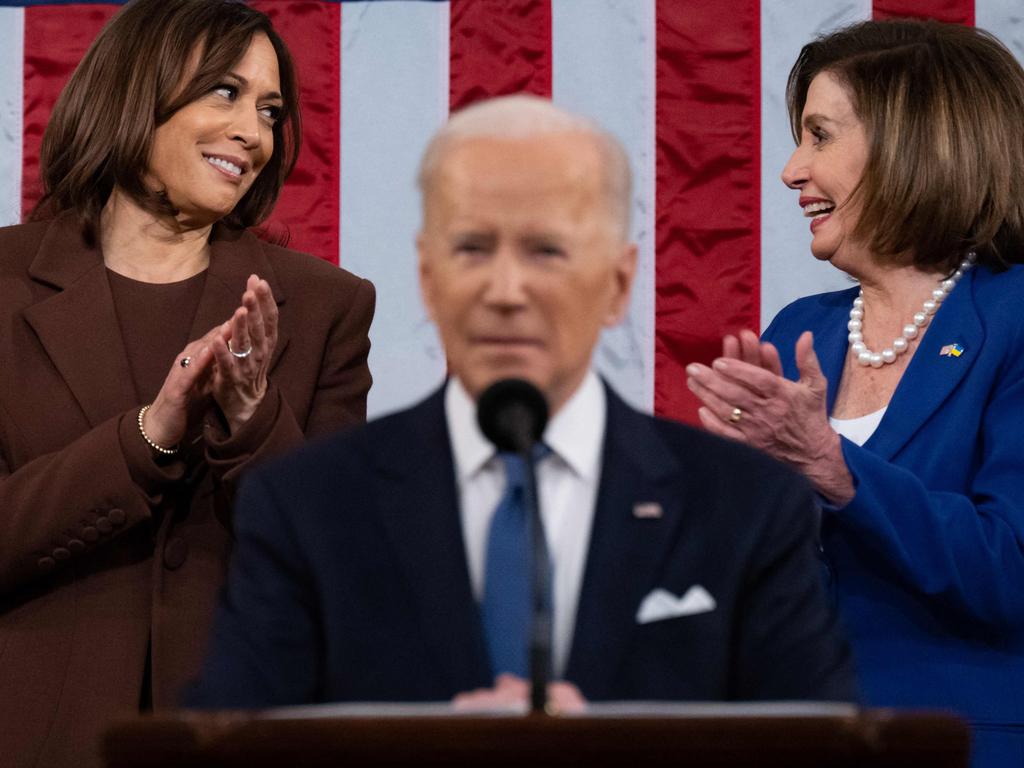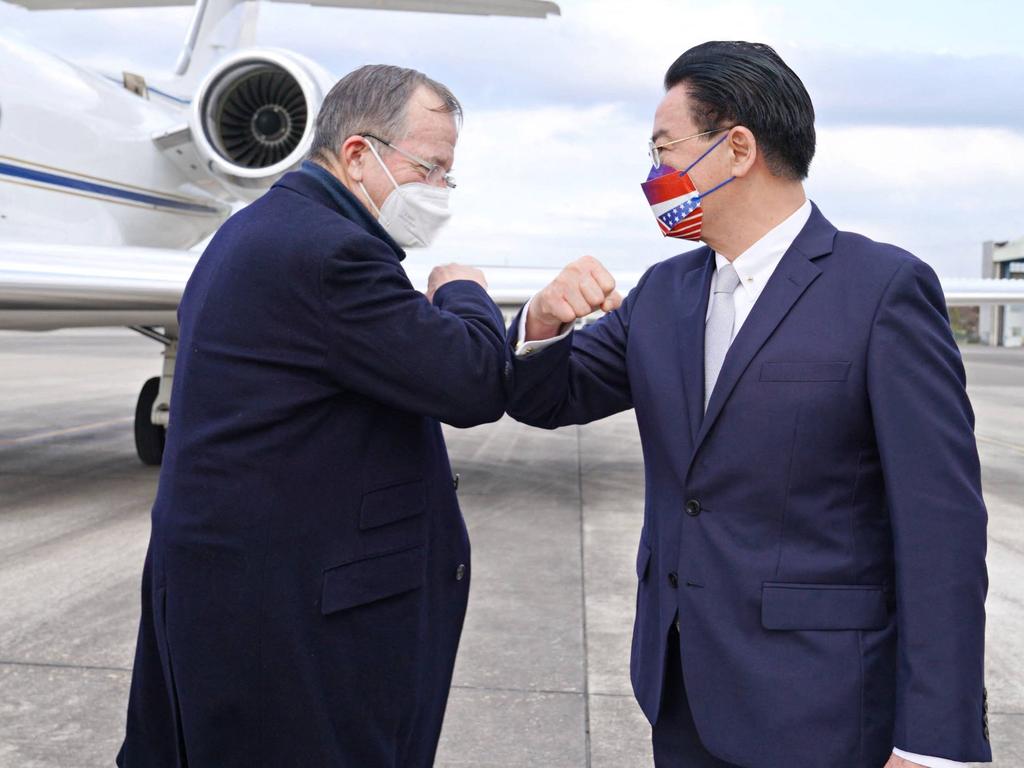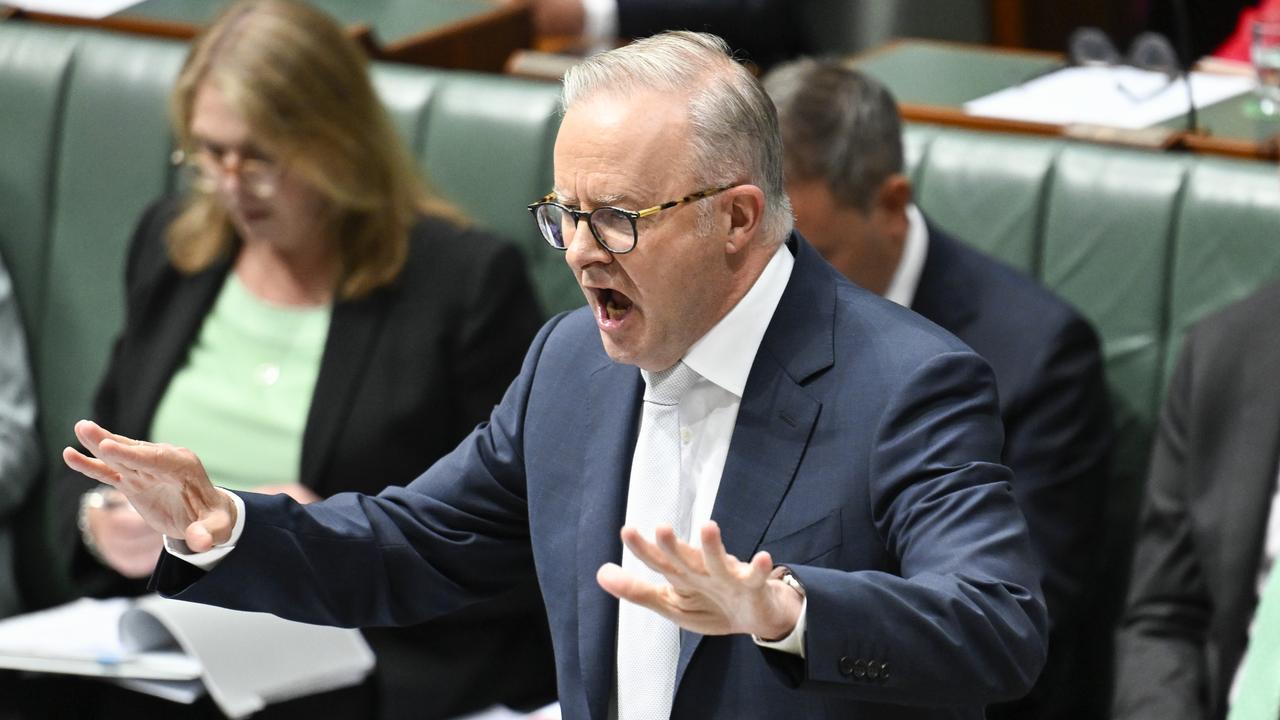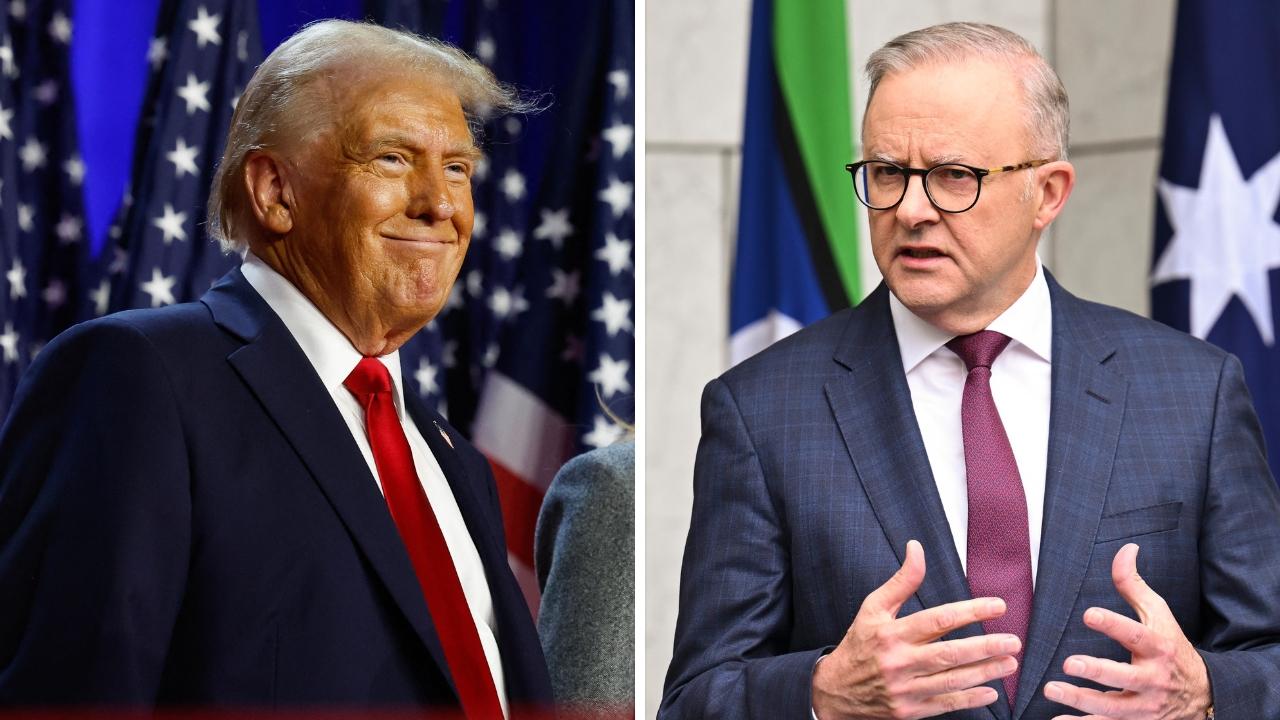Joe Biden’s speech was no match for Zelensky’s but the US has rallied allies for Ukraine

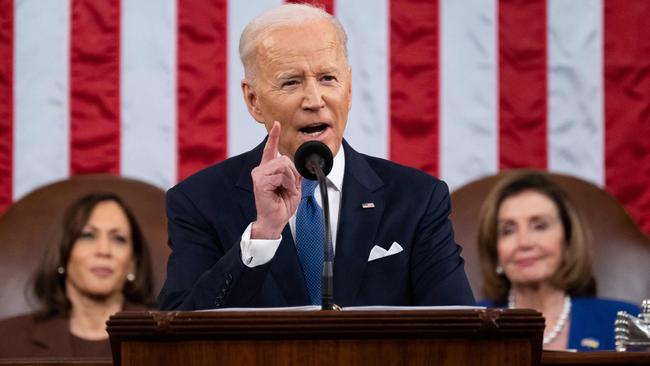
It’s bad luck for US President Joe Biden that his State of the Union speech came a day after Ukrainian President Volodymyr Zelensky addressed the European parliament. Even over a video link, and mediated by a translator, Zelensky was electrifying. By contrast, Biden was, broadly speaking, Biden.
By choosing to fight rather than capitulate, Ukrainians have embraced terrible suffering. Partly because the Russians have been unable to defeat the vastly out-gunned Ukrainian military, Vladimir Putin’s forces are increasing attacks on Ukrainian civilians. The next few days may be very grim.
But Ukrainians’ courage has given their nation a chance of rising again. Assuming the Russians ultimately establish imperial control over Ukraine – by no means certain but still fairly likely – then Moscow will establish a puppet regime there. A modern-day Vichy government in Kyiv.
But the heroism of Zelensky and his people probably mean the flame of Ukrainian national sentiment will continue to burn strong. The communist Soviet Union, which formed Putin in the KGB, kept east European nations under communism during the Cold War only through force, suppressing the Hungarians in 1956, the Czechs in 1968 and installing a military government in Poland in 1980.
Those nations yearned every day to be free of Moscow’s control. This not only made keeping the peace difficult, it meant the local puppet regimes tried to accommodate nationalist sentiment in their own societies.
Today, Zelensky is the bravest man on the planet. Sometimes democracy gets it right. Zelensky is an ordinary enough man in extraordinary circumstances doing the very best a man could do.
While the US and other NATO nations have said they won’t intervene militarily in Ukraine, if the fall of Kyiv is imminent a secret mission to rescue Zelensky, for the sake of his country’s future, would be amply justified. If Zelensky is at large he will be as important as Lech Walesa was to Poland or Nelson Mandela to South Africa.
The part of Biden’s speech on Ukraine was OK. He didn’t announce much new of substance – Russian planes banned from US air space and plans to go after Russian oligarchs financially. He did promise to defend NATO countries. He offered no sense of how the future could unfold.
He didn’t tell the Russians they would suffer crippling sanctions while ever they had their troops on Ukrainian soil.
He did express admiration and solidarity for the Ukrainian people and promised them more aid. He got bipartisan support on Ukraine.
By the way, it’s worth pausing for a second to note the utterly contemptible support for Putin in the past few years in sections of the populist right, in the US, Australia and elsewhere in the West.
Donald Trump grotesquely called Putin a genius just before Putin launched the Ukraine invasion. The fact Putin jokes about rape and doesn’t like homosexuals may show he is politically incorrect, it doesn’t show he’s worth support from any civilised person.
Similarly, he is not remotely a defender of Christianity, despite funding the Russian Orthodox Church. Instead he probably has done more than the Soviet-era tyrants to damage Orthodox religion by morally subverting it as a tool of his own revanchist propaganda and extreme ethno-nationalism. The Putin boosters were as stupid as anyone could be in Western politics.
Biden’s administration has managed the allied response to the Russian invasion reasonably well. There is a paradox in Biden’s cabinet and senior advisers. Biden and his senior people recognise the primacy of the China challenge and the centrality of Asia.
But most of them are natural Atlanticists in their international outlook. Consulting the EU is second nature to them and that has been important in this case. The situation hasn’t needed too much US persuasion. The Europeans, for the moment, have been shocked into a realisation of what kind of regime they’re dealing with in Moscow. Nonetheless, Biden’s consultative and gradual style has been effective in this circumstance.
It is true that Biden slowed the supply of weapons to Ukraine before the invasion and made some deeply confusing comments suggesting a lack of US resolve.
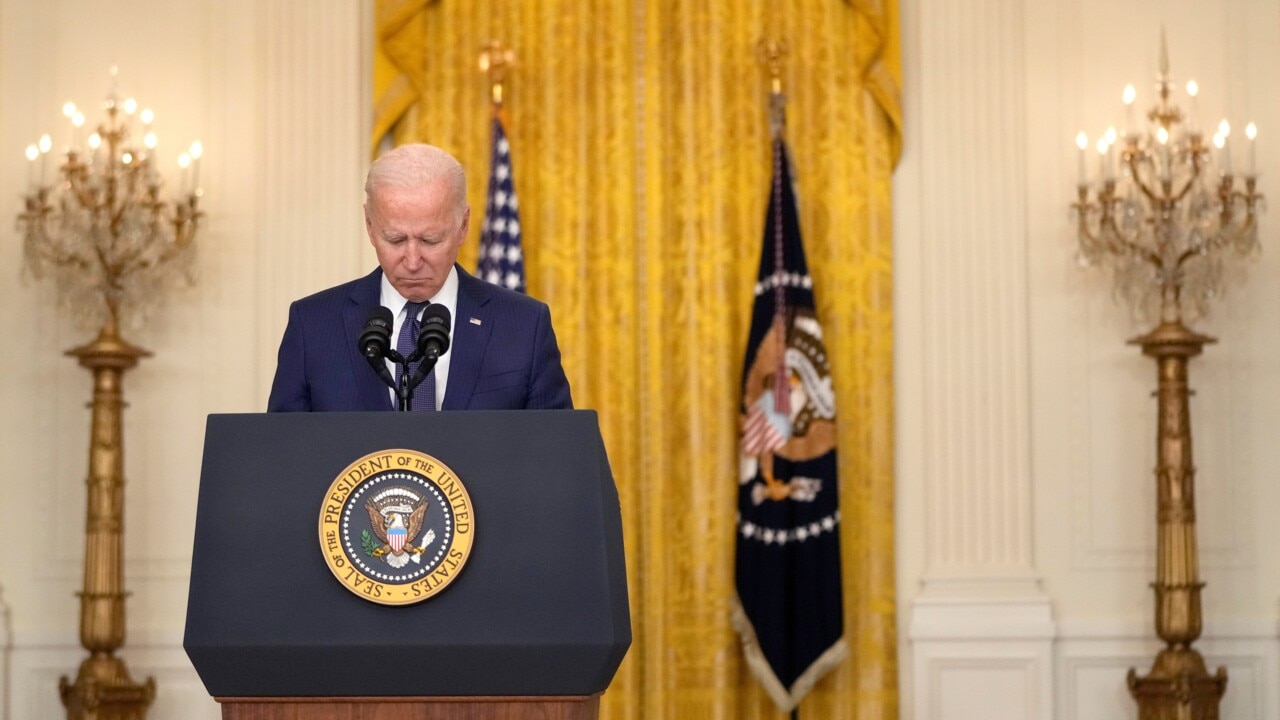
One question must be how the West acts if Putin eventually wins decisively. In his State of the Union address, Biden repeatedly said dictators must pay a price for their aggression or they are encouraged to new and further acts of aggression.
One question always is: how great is the price and how long does it last?
The global outrage after the Tiananmen Square massacre in 1989, when the Chinese army murdered innocent demonstrators seeking democracy and human rights, was similar to what the world feels today. The world imposed a range of sanctions on Beijing.
But seemingly five minutes later all the usual arguments, which I myself have often enough found convincing, came out to the effect that engagement was better than isolation, dialogue better than silence, that the world would change China through engagement because China’s people, exposed to the liberal ideas of the West, would demand it of their own government.
So quite soon after the massacre, Beijing was completely rehabilitated. The Chinese Communist Party regarded temporary Western outrage, and even more temporary sanctions, as a trivial price to pay in exchange for crushing the democracy movement.
After Putin establishes a puppet regime in Kyiv, the same folks will make the same arguments about Russia. And if sanctions are gradually eased Moscow may well regard them as a small price to pay in exchange for the subjugation of Ukraine and the addition of all that territory, and all those people, to Moscow’s rule. Sanctions should last until Moscow leaves Ukraine.
And of course the lessons of such a long-term Russian success would not be lost on Beijing as it contemplates possibly invading Taiwan. This could be facilitated by yet another perverse result of Russia’s Ukraine invasion.
Here’s a lesson from recent history. The war on terror resulted in the US distorting its military force structure to a very heavy emphasis on the army. Meanwhile, all unaddressed, Beijing’s maritime challenge grew and grew. A new emphasis on NATO could produce a similar delay in the process of necessary military reconfiguration that the US is only slowly embracing.
Most of Biden’s speech was the normal laundry list of sound-bites, notable because it embraced the police and more or less avoided identity politics.
The Democrats will get hammered in this year’s mid-term congressional elections and that, paradoxically, may well help Biden’s presidency. Losing congress saved both Bill Clinton and Barack Obama from having to go too far left. Overall, the State of the Union gets a modest C-plus.

